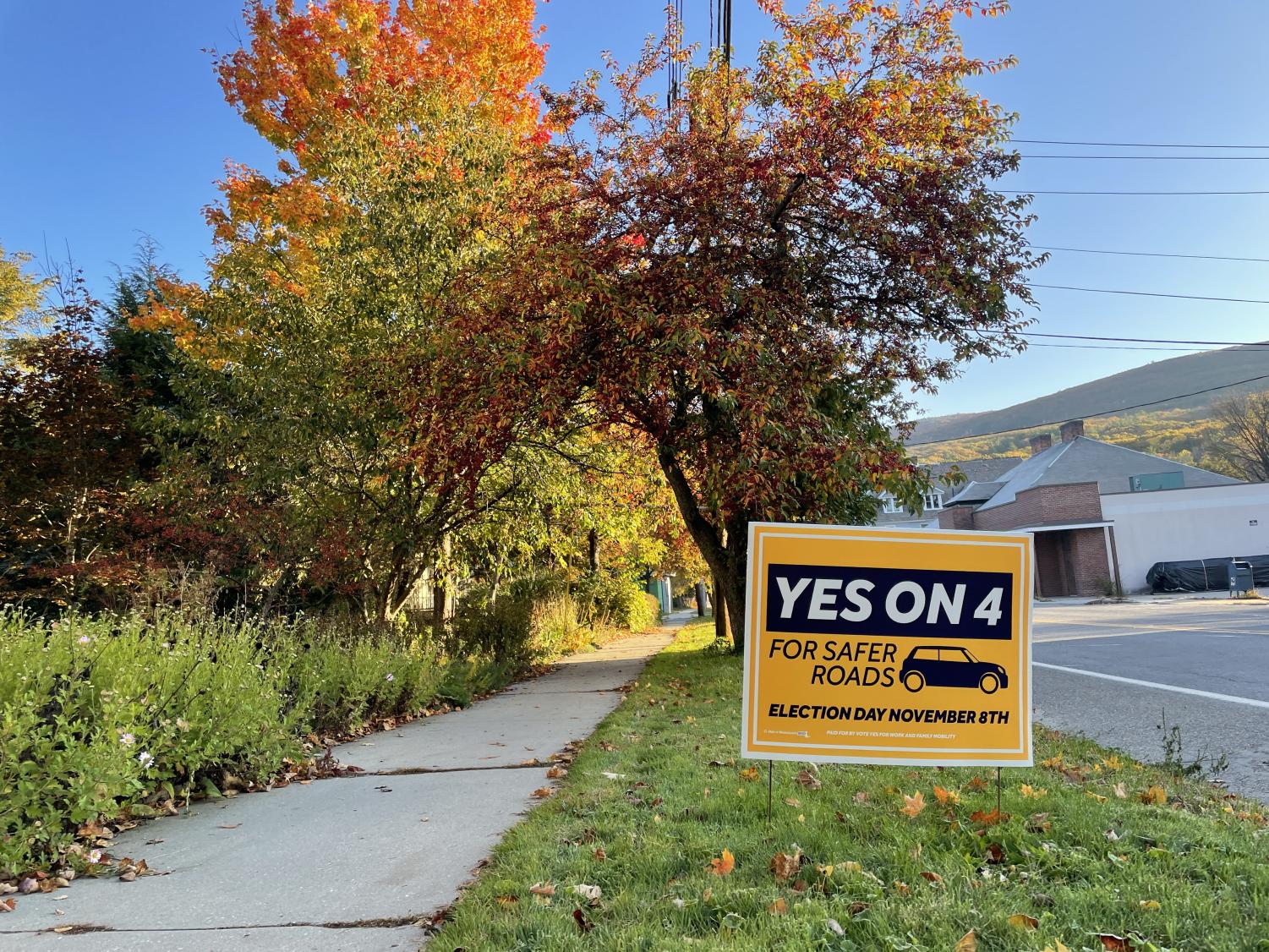Mass. to vote on granting driver’s licenses regardless of immigration status
October 26, 2022

Ballot Proposition 4 will ask Massachusetts voters at the Nov. 8 general election whether they approve of the Work and Family Mobility Act, the state law that would allow undocumented individuals to obtain driver’s licenses and learner’s permits.
The Massachusetts state legislature first passed the law on May 26; it was quickly vetoed by Massachusetts Governor Charlie Baker, though his veto was subsequently overridden by the largely Democratic legislature. In response, 71,883 Massachusetts residents signed a petition started under the state’s initiative petition process to repeal the law — almost twice as many signatures necessary for Proposition 4, the repeal referendum, to be placed on the ballot.
There are four ballot questions on the Massachusetts ballot this November. Also known as propositions, these questions will ask citizens to directly decide on petitions and constitutional amendments by voting “yes” or “no.” On Election Day, voters in Massachusetts will be asked whether the Work and Family Mobility Act should stay in place or be repealed. A vote “yes” will keep the law in place.
“This law allows Massachusetts residents who cannot provide proof of lawful presence in the United States to obtain a standard driver’s license or learner’s permit if they meet all the other qualifications for a standard license or learner’s permit, including a road test and insurance, and provide proof of their identity, date of birth, and residency,” the proposition summary on the ballot will read.
The law further stipulates that while the Registry of Motor Vehicles (RMV) cannot record an individual’s undocumented status, individuals must meet a rigorous standard of proof of identity and birthdate through various forms of official identification. Furthermore, undocumented individuals cannot become registered to vote, even though driver’s licenses typically lead to automatic voter registration in Massachusetts.
Supporters of the Work and Family Mobility Act cite safety as a key justification. State Representative Tricia Farley-Bouvier of Berkshire County, who is a lead sponsor of the bill, said in an interview with Spectrum News, “We have seen in the data that in states that have passed this law, hit-and-run accidents have gone down significantly.” According to Yes on 4 for Safer Roads, an organization in support of the law, the act has significant support from law enforcement officials.
Assistant Professor of Political Science Sidney Rothstein, an active member of the Berkshires Democratic Socialists of America, called the law “common sense” in an email to the Record. “Especially in Berkshire County, where the lack of sufficient public transit makes driving unavoidable in many situations … it’s essential that nobody is denied access to these resources because they’re afraid of breaking the law in order to do so,” he wrote. “It’s equally important that everyone on the road is licensed and knows the traffic regulations, and that if they have an accident, damages can be covered by insurance.”
Those who are opposed to the proposition, including Governor Baker, have expressed apprehension about the RMV’s capacity to manage the complex identification processes of undocumented individuals. Additionally, groups like Fair and Secure Massachusetts, an activist group that is strongly opposed to the act, have expressed concerns that providing driver’s licenses to undocumented individuals will lead to voter fraud.
In an email to the Record, Professor of Political Science James Mahon noted that these concerns are largely unfounded: “[Those opposed to the law] claim that undocumented people with driver’s licenses would be able to vote illegally,” he wrote. “There are citizenship and residency questions on RMV license application documents, and these are used to indicate to the person filing them that the document cannot legally be used for voting registration… This is all about a few people who are reflexively anti-immigrant looking for a way to scare those who are still ignorant about the relevant laws.”
The proposition, which has largely split voters down party lines, has created a battle between road safety and concerns around immigration. The outcome will play out for Massachusetts in the polls on Nov. 8.








